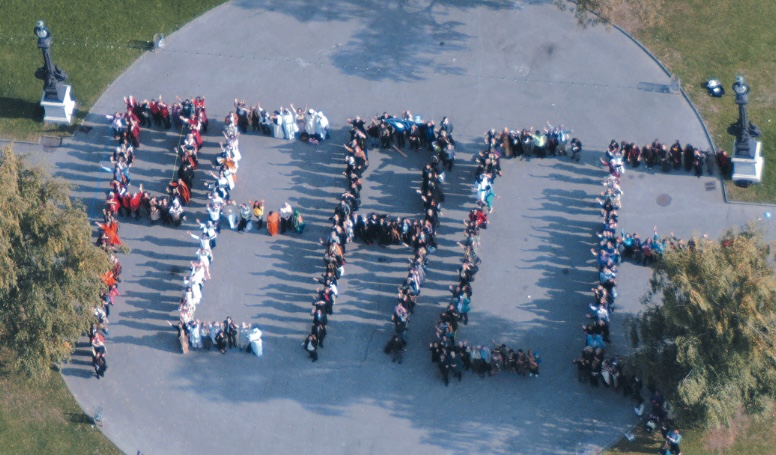Five hundred women religious and spiritual leaders met in Geneva, Switzerland, from October 7 to 9, 2002, in the first-ever gathering of women from all the major religions and faith traditions from all regions of the world. They announced peace-building strategies designed to ensure that women play a greater role in the peace process in regions of conflict.
Christian, Muslim, Jewish, Hindu, Buddhist, Sikh, Bahai, Zoroastrian and Indigenous leaders from 75 countries designed five actions to focus women’s joint efforts on peace. Sri Mata Amritanandamayi Devi, one of Hinduism’s foremost religious leaders, was prominent at the meeting [see facing page]. “Women have been silent for too long, and now we are preparing a united call for peace, ” says Dena Merriam, Convener, The Global Peace Initiative of Women (www.millenniumpeacesummit.org [http://www.millenniumpeacesummit.org]).
The Global Peace Initiative created a Women’s Negotiation Corps, a group of international women who will visit zones of conflict to initiate women-to-women diplomacy. The Corps will engage in fact finding that can provide political leaders with different insights into everyday realities, catalyze women’s peace building initiatives on the ground and open new channels to support official diplomacy.
For example, the women will travel to Afghanistan to work with the Ministry of Women’s Affairs to support women’s education, training and economic viability to strengthen women’s roles in the rebuilding and healing of Afghanistan. Participants at the Peace Initiative agreed that women are the force that can reduce the use of religion to promote violence. They stressed that women are natural mediators and conciliators and, indeed, they must play that role because armed conflicts now impact women the most.
Reinforcing that message, H.E. Sergio Vieira de Mello, United Nations High Commissioner for Human Rights, in addressing the meeting at the Palais des Nations (United Nations) said, “We must find ways to ensure that women leaders who play an active role in the pursuit of peace become the rule rather than the exception.”
“Even at a three-day conference, progress was made and creative ideas emerged to break down barriers and build bridges between peoples in conflict,” says Rev. Joan Brown Campbell, Director of the Department of Religion of Chautauqua Institution. The ideas included exchange of religious leaders between countries, protests of weapons of mass destruction, development funds for women and incorporation of “peace education” in school curriculums. The women agreed that politics without spirituality will always fail, thus they called for use of united prayer.
The Global Peace Initiative of Women is a direct outcome of the Millennium World Peace Summit of Religious and Spiritual Leaders that brought over 2,000 pre-eminent religious leaders and their delegations to the United Nations in New York in August, 2000. Less than 15% were women. This led to a commitment to build a network of accomplished women religious and spiritual leaders, along with their counterparts from business and government, who can support United Nations activities aimed at eliminating the causes that lead to conflict.
